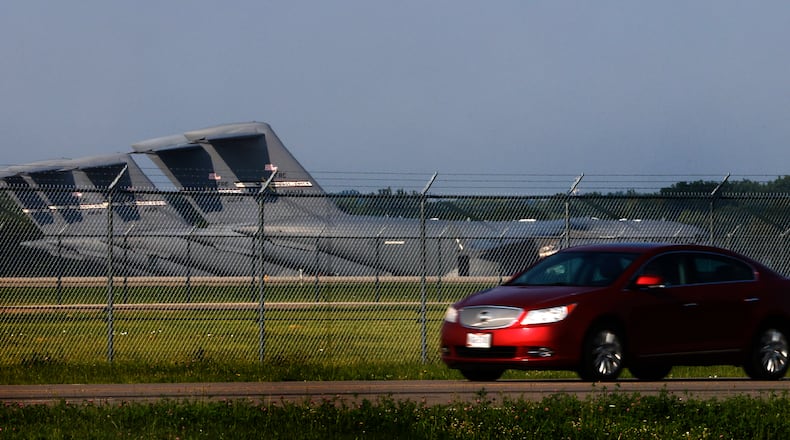“We (Ohio) are a national security state, we’re an aerospace state, we’re a manufacturing state,” Brown said in a phone call with reporters Wednesday. “If one of their connected cars drive by Wright Patt (Wright-Patterson Air Force Base) or NASA Glenn (Research Center, near Cleveland) ... the Chinese Communist Party could use a connected car to listen in to private conversations or transmit senstive data or gather intelligence.”
He also expressed misgivings about Chinese investors buying “sensitive land,” such as agricultural land, near American military bases.
“We know that the Chinese Communist Party runs an elaborate surveillance state on their own people, and that extends to surveillance as far as they can get away with,” said the senator, who is seeking reelection to a seat he first won in 2006. “They steal trade secrets from U.S. companies. And I would say that presidents of both parties have sold out American manufacturers and American workers.”
He said China itself has banned U.S.-made, Internet-connected vehicles from locales near Chinese People’s Liberation Army sites.
“Ohio has a number of federal installations that deal with the military,” said Jeff Hoagland, president and chief executive of the Dayton Development Coalition, which has long made protecting Wright-Patterson, the largest single-site employer in the state, its top priority. “ ... Obviously, Wright-Patt is the biggest. It’s the center of aerospace technology development and military aerospace intelligence.”
In the call, Hoagland pointed also to the presence of Ohio National Guard forces at Rickenbacker International Airport (home of the 121st Air Refueling Wing) near Columbus and the 179th Cyberspace Wing near Mansfield, as well researchers at the NASA Glenn facility.
Michael Stumo, CEO of the Coalition for a Prosperous America, which represents manufacturers and other American businesses, said China has been identified as an adversary of the United States in national intelligence estimates.
“We are in China-shock 2.0,” Stumo said on Wednesday’s call. “We saw what happened with China-shock 1.0. And finally America is starting to react.”
Brown has already called for a ban in the U.S. on Chinese-made electric vehicles “to protect Ohio autoworkers, and to combat the economic and national security threats posed by Chinese automakers.”
He wrote to President Biden in April, saying: “Time and again, we have seen the Chinese government dump highly-subsidized goods into markets for the purpose of undermining domestic manufacturing. With this approach, the Chinese Communist Party is playing a long game — identifying critical emerging sectors, treating them as mechanisms for large-scale domestic employment.”
Brown offered no details on how a ban might be enforced. “The goal is stop this before the cars are driving down our road. The earlier they do this, the better.”
“This is pre-empting a major problem,” he added.
In April, members of the House Select Committee on the Chinese Communist Party aired concerns in a letter to Defense Secretary Lloyd Austin, citing a Commerce Department investigation, inquiring into a ban on transactions involving certain Chinese vehicle technology in the U.S.
“The authors cite potential data and cyber-security risks posed by so-called connected vehicles that capture massive amounts of personal data,” Bloomberg News reported at the time.
“The national security risk is very real,” the lawmakers wrote. “Many of the enabling technologies such as LiDAR or Internet of Things Modules could continue to operate on our U.S. roads and in our critical infrastructure.”
The world’s largest supplier of LiDAR — light detection and ranging — is Hesai Group, a company with ties to Shanghai and California’s Silicon Valley, Bloomberg said.
A message seeking comment was sent to the U.S.-China Business Council, a private, nonpartisan, nonprofit association of more than 270 American companies that do business with China.
About the Author

